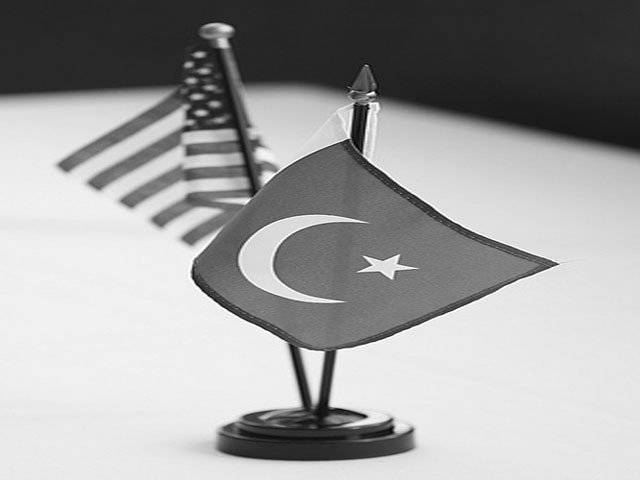Can the shaky anti-terror alliance between Pakistan and the United States be saved? Secretary of State Hillary Rodham Clinton and Chairman of the Joint Chiefs of Staff Mike Mullen made an emergency visit to Islamabad last week to try to ease the tensions between our two countries, one month after Navy SEALs killed Osama bin Laden in Abbottabad. The Pakistani military is seething that the raid was carried out without its knowledge. To avoid the need for future such US strikes, Clinton asked the Pakistanis to act against a list of extremist leaders believed to be hiding in Pakistan. They include three senior Al-Qaeda figures - Ayman al-Zawahiri, Atiya Abdel Rahman and Ilyas Kashmiri who has been killed in a drone attack on Saturday - as well as the Afghan militant Sirajuddin Haqqani, and the Afghan Taliban leader Mullah Omar. "We asked the Pakistanis to work with us against those high-value targets," I was told by a US official, "so we don't need to take any unilateral action." But will such cooperation be forthcoming? Having just returned from Pakistan, I'd say the answer is most unclear. The disconnection between US and Pakistani views on the killing of bin Laden and the wider struggle against terrorism is depressing. Indeed, the mistrust between Pakistan and the United States has reached such toxic levels it's hard to see how it will be overcome. My conversations with Pakistani officials revolved around wounded pride, not introspection. They point to Clinton's statement that there's no evidence that senior Pakistani officials knew where bin Laden was hiding. Their repeated refrain: "Why didn't you trust us to do a joint operation to get bin Laden?" They kept repeating that Pakistan has helped arrest numerous Al-Qaeda - and Taliban - operatives over the last decade. "We need to know where we stand," I was told by an angry Pakistani security official. "The only issue is whether you Americans trust us as an ally." Yet, the US perspective on the Abbottabad raid is 180 degrees different. Current and former US officials believe that, prior to 2008, information on drone strikes shared with Pakistan's ISI intelligence agency was leaked to the targets. The drone strikes came up empty, leading the CIA to stop sharing information. US officials believe ISI operatives know the location of Haqqani, as well as Omar and his inner circle, given the long history of ISI ties with the Afghan Taliban. However, Pakistani security officials categorically denied to me they knew where Omar was hiding. "If we knew where he was, we'd catch him," said one senior security official. Pakistani officials also insist their ties with the Afghan Taliban are not what they were 15 years ago, when they helped the Taliban take control of Afghanistan. Nor, they say, are they trying - as many believe - to restore the Afghan Taliban to power. Yet, the United States has repeatedly urged Pakistan to go after the Haqqani network and Mullah Omar's inner circle - to no avail. Yet American officials are convinced Pakistan is playing a double game, even if it denies it. So, the trust deficit between the two sides keeps growing more intense. Pakistan's weak civilian government is unable to rebuild infrastructure and restore services in areas cleared of Taliban. This means that Pakistani troops can't leave or the jihadis will return. "If we engage Haqqani now," says one Pakistani senior security official, "the whole region will explode." US officials concur, worrying that the fight might be difficult if it opened another front. At this moment, both the countries badly need more cooperation with each other. Yet the relationship appears headed in the other direction. Pressed by an anti-American public, the military has sharply cut back on intelligence-sharing operations along the Afghan border, and asked most of the 100 or so US Special Forces trainers working with their Frontier Corps troops to leave. Cooperation between the two countries is vital to both countries' antiterrorist struggle - and to any US exit strategy from Afghanistan. "Americans need us and we need them," one Pakistani official told me, correctly. Keeping that mantra in mind will be very difficult in the coming months. McClatchy
Friday, April 19, 2024
Wide gulf for 2 allies who need each other

8:09 AM | April 19, 2024
PTI founder’s interim bail extended in three cases
12:00 PM | April 19, 2024
US encourages Pakistan to prioritise and expand economic reforms
11:42 AM | April 19, 2024
Hafiz Naeem takes oath as JI chief, announces anti-government movement
11:39 AM | April 19, 2024
Faizabad commission report leaked, it should be made public now, suggests Abbasi
11:11 AM | April 19, 2024
A Tense Neighbourhood
April 19, 2024
Dubai Underwater
April 19, 2024
X Debate Continues
April 19, 2024
Hepatitis Challenge
April 18, 2024
IMF Predictions
April 18, 2024
Kite tragedy
April 19, 2024
Discipline dilemma
April 19, 2024
Urgent plea
April 19, 2024
Justice denied
April 18, 2024
AI dilemmas unveiled
April 18, 2024
ePaper - Nawaiwaqt
Advertisement
Nawaiwaqt Group | Copyright © 2024





